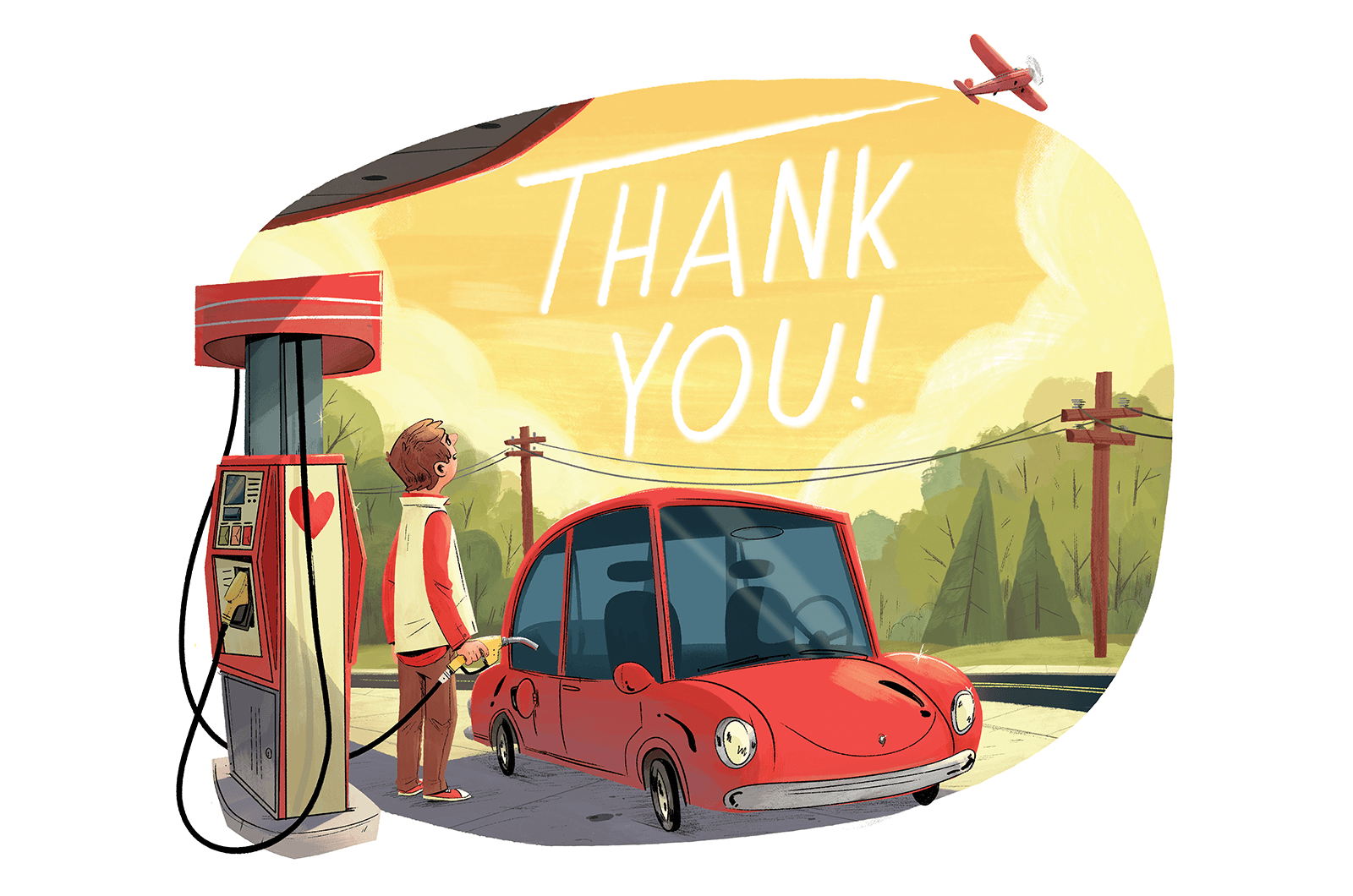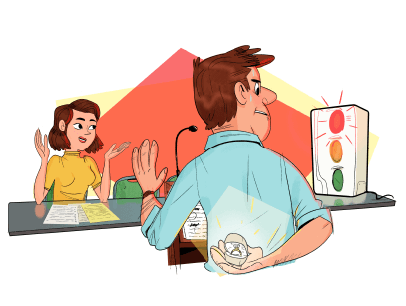 Illustration by Bart Browne
Illustration by Bart BrowneHow’s your love tank? If it’s on Full you can skip this column and go back to binge watching The Great British Bake Off. If it’s on Empty, start reading. You may find just what you need to move the needle. I’m talking about The 5 Love Languages®: The Secret to Love that Lasts by Gary Chapman, Ph.D., a marriage counselor from North Carolina. If you haven’t heard of The 5 Love Languages, you’re living too far off the grid, my friend. This is a book that’s been selling steadily for over 25 years to the tune of 12 million copies in 50 different languages. And it’s all about filling your love tank, which is Mr. Chapman’s way of saying getting the love you need. (I wish he hadn’t used the word “tank.” It sounds like you might need an oil change, too.)
But there’s no quarreling with success. Many of those 12 million readers claim Mr. Chapman’s book did nothing less than save their marriages by telling them “the secret to love that lasts.” Because it doesn’t, you know—at least not the fun part. Every couple remembers the intoxication of new love—the butterflies in the stomach, the thrill of a touch. It’s that irresistible emotion that impels you to vow before God and man that you will love and cherish your perfect mate until the end of time.
Which, according to research, turns out to be about two years.
This is when “the honeymoon is over,” as we say—a euphemism for that slow but inevitable transition from “You’re everything I dreamed of” to the beginning of “When did you become so annoying?” Mr. Chapman counseled many married couples and found that this disillusion stemmed from miscommunication. After hearing the same complaints over and over, he concluded that there were five basic ways people relate lovingly, each having its own “language,” and the unhappy couples simply weren’t speaking the same language, like someone saying “I love you” in Chinese to a person who only understands Greek.
He might do the laundry and then feel disappointed when his wife doesn’t hire a skywriting plane to say THANK YOU!
The author defines these languages as affirmation (compliments, encouragement, appreciation), quality time (doing things together), receiving gifts (cards, flowers, jewelry), acts of service (doing the dishes, mowing the lawn), and physical touch (holding hands, hugging, affectionate arm squeezes). The problem is that if the husband loves, say, acts of service, he will assume his wife feels the same way, when in fact her real need (language) is different—perhaps for affirmation. Consequently, he might do the laundry and then feel disappointed when his wife doesn’t hire a skywriting plane to say THANK YOU! To her it’s just part of sharing household chores. And she, who needs appreciation, will feel neglected when he doesn’t alert the national media about her promotion to assistant manager. Given this dynamic, I’d say the Chinese and the Greek have a better shot than these two.
This is where Chapman rides to the rescue by encouraging couples to read his book together, learn each other’s love language, and then act accordingly. Once they’re speaking the same language, each will feel loved and their relationship will blossom. It may not be the heady infatuation of their youth, but it won’t be the Marriage Marathon of Misery either.
Of course, the first thing is knowing what your love language is, which you can discover by taking a test that asks you to choose one selection from 30 paired statements. For instance, “It’s more meaningful to me when (A) She puts her arm around me when we’re in public, or (B) she surprises me with a gift. Well, my wife already does (A). I’m sure love is involved, but it’s more to keep me from walking into lamp posts and knocking over baby carriages.
I took the test myself and it turns out my love tank needs premium fuel—not one language but two: acts of service and affirmation. (I’m a needy person.) So when my wife gets home I’m going to ask her to power wash the house and nominate me for a Pulitzer Prize. I’m sure she’ll have some language for that.
John Cadley is a former advertising copywriter, freelance writer, and musician living in Fayetteville, New York. Learn more at www.cadleys.com.
Related Articles

Funny You Should Say That



 Previous
Previous
 Previous Article
Previous Article